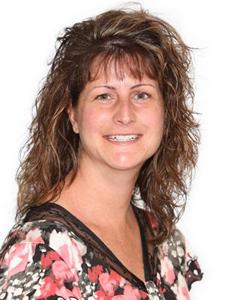Meet EPA Scientist Nicolle Tulve, Ph.D.

Reducing Exposures to Improve Health
EPA scientist Nicolle Tulve, Ph.D., conducts research to advance our understanding of the relationships of chemical and non-chemical stressors that affect children’s health and well-being. The work she does provides community decision makers with information they need to promote children’s health and well-being in child-specific environments within the community.
When not at work, she can be found out and about playing her viola in local symphony orchestras.
How does your science matter?
My research team and I focus on reducing children’s exposures to chemicals and other types of stressors (also known as non-chemical stressors), thereby improving their health and well-being and minimizing their risk. To understand exposure, we have to understand: what people are exposed to, how they are exposed to it, how we can reduce those exposures, and how we can educate folks to make good decisions on reducing their exposures, if they can.
A lot of my work over the past several years has been collecting information on the air people breathe, the food people eat, and the surfaces they touch to measure their exposures to various types of chemicals. We collect and analyze these samples for different chemicals. We use all this information to reconstruct their potential exposure during their daily lives. We then work with our colleagues in the health effects research area to figure out what the impact may or may not be to health and well-being.
In addition to studying how we can reduce exposures to chemicals, we are analyzing how other things may affect children’s health, such as lack of sufficient green space for recreation, exposure to violence or crime, and other community level factors. We hope that by considering all of this information together, we can gain a more complete understanding of children’s health and well-being.
What do you like most about your research?
What I like most is the opportunity to have a positive impact on people's everyday lives. An example of that impact would be our work with pesticides. By learning more about how people might be exposed to pesticides where they live and in the course of their daily lives, we provide the information regulators in the Agency need to make decisions about chemical registration and safe practices. I also like that what we do is pretty cutting-edge. There are not a lot of research groups doing what we do in relation to considering how the inter-relationships between chemical and non-chemical stressors affect health and well-being.
Can you tell us about your science and educational background?
I started my college career at the State University of New York (SUNY)-Oswego where I got my bachelors in Biology with a minor in Chemistry. I then received my master's degree in Environmental Health and Toxicology from SUNY-Albany. After that, I went to Clarkson University in Potsdam, NY and received my Ph.D. in Environmental Engineering.
If you could have dinner with any scientist, past or present, who would you choose and what would you like to ask them?
I would like to have dinner with Rosalyn Sussman Yalow. She won the Nobel Prize in 1977 for helping to discover how to use radio isotopes to detect hormone levels in blood to measure for different types of diseases. I would ask her if she realized that her discovery would have such a profound impact on public health. Since she worked in the federal sector generations ago, I'd also want to know what it was like for her as a woman working in the federal sector at that time. I would like to compare her experiences to present day.
When did you first know you wanted to pursue science?
For as long as I can remember, I've wanted to do something in science. Both of my parents were science teachers; my mother taught at the middle school level and my father taught high school. I was always surrounded by science. I always knew my career would be in science, but I didn't know what. As I was finishing college, I realized I wanted to do something that had an impact that you could see.
If you were not a scientist, what do you think you would be doing?
I would probably be playing my viola professionally. I've been playing it almost my whole life and I currently play in two symphonies in my spare time.
Do you have any advice for students considering a career in science?
No matter what you think you want to do, college is the time to experience new things and take lots of different courses. Also make sure you're doing something that is not science oriented, such as pursuing a hobby. You need to develop a passion for something outside of science.
